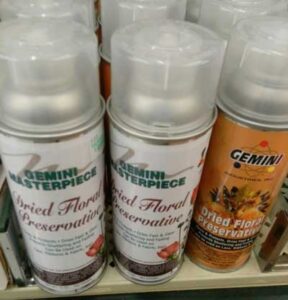[Source: CARB] The California Air Resources Board reached a settlement agreement with Gemini Coatings, Inc. of Oklahoma for $145,000 for violations of the consumer products regulations that set limits for smog-forming compounds.
CARB investigators found that from 2015 to 2018, Gemini Coatings sold, supplied, offered for sale, and/or manufactured noncompliant consumer products in California. One of the products exceeded the volatile organic compound (VOC) limit for non-aerosol paint thinners; two products exceeded the VOC limit for non-aerosol general purpose degreasers; and, the last product exceeded the reactivity limit for floral coating. In addition, the non-aerosol general purpose degreasers failed to display a date of manufacture as required by the Consumer Product Regulations.
 Some consumer products emit smog-forming VOCs and impact air quality and public health. VOCs are a precursor to smog. CARB recently adopted amendments to several Consumer Products Program regulations that will help California attain federal ozone standards, and reduce public exposure to air toxics.
Some consumer products emit smog-forming VOCs and impact air quality and public health. VOCs are a precursor to smog. CARB recently adopted amendments to several Consumer Products Program regulations that will help California attain federal ozone standards, and reduce public exposure to air toxics.
“These smog-forming compounds pose a serious risk to public health and harm California’s air quality. CARB is committed to enforcing the consumer product rules to improve the air we all breathe and to help California meet the federal ozone standards that protect public health,” said CARB Executive Officer Richard Corey.
The violations in this case produced nearly 12 tons of excess VOCs and 0.34 tons of excess ozone over the course of the three years.
This was a first-time penalty for Gemini Coatings and the company was cooperative during the investigations and follow up. To come into compliance, Gemini stopped the sale of noncompliant products and modified other products to be meet the standards in the regulations. The $145,000 fine will go to the Air Pollution Control Fund, which provides funding for projects and research to improve California’s air quality.
Since the Consumer Products Program began in 1988, CARB has limited the allowable VOC content of more than 100 categories of products, achieving 250 tons per day of VOC reductions. Today, the program not only reduces smog-forming compounds and particulates, but also provides significant reductions in both air toxics and climate-changing gases.
Source: Lynda Lambert, CARB
April 14, 2021


